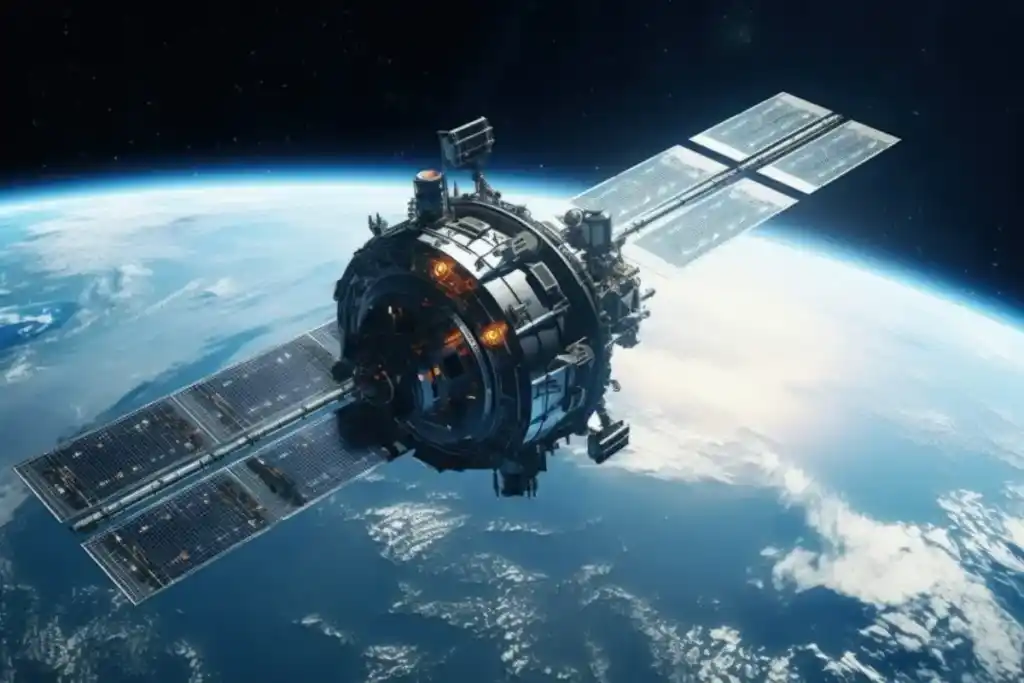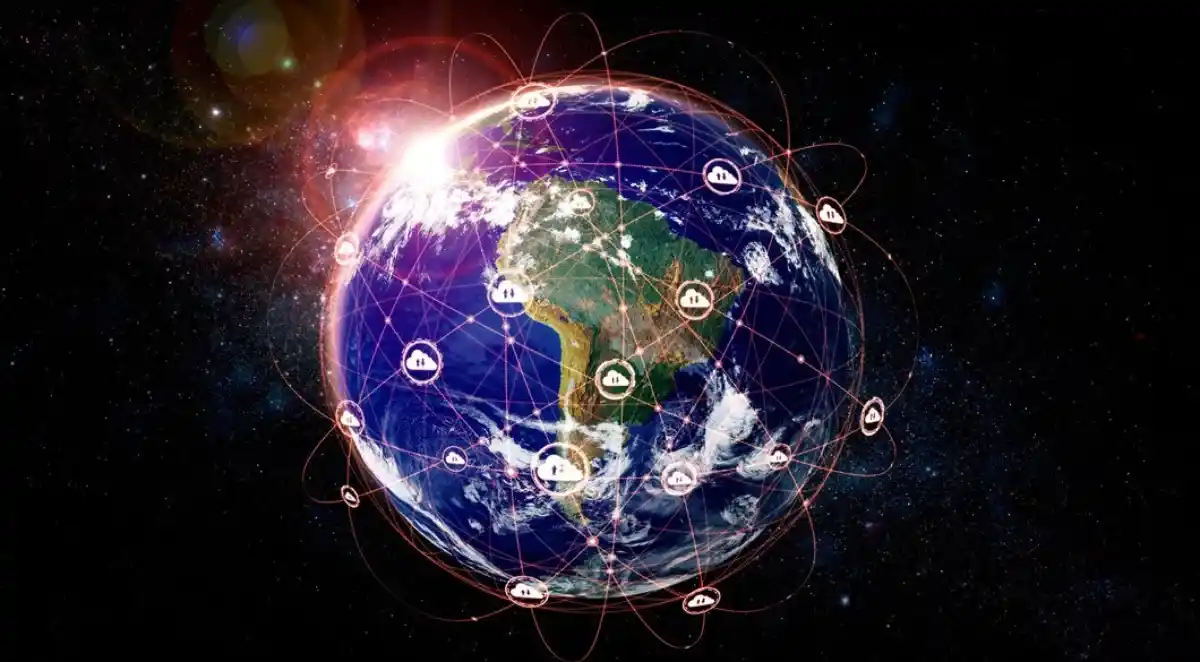
How Space Tech Innovations Are Shaping the Future
Space technology is advancing quickly. This change is transforming how we explore and connect with the universe. Modern space tech trends, like reusable rockets and AI-driven satellites, are breaking new ground. With strong investments from governments, businesses, and research groups, space travel’s future seems bright.
In the UK and worldwide, the space sector is experiencing unprecedented growth. Space technology innovations boost interplanetary travel. They also improve life on Earth. This happens through satellite communications, climate monitoring, and better navigation systems. This article looks at the newest space tech trends. It discusses how they affect different industries and what the future of space travel might be.
Quick Guide: How Space Tech Innovations Are Shaping the Future
- Reusable Rockets: Companies like SpaceX reduce space travel costs and increase sustainability by using rockets multiple times.
- AI and Robotics in Space: Autonomous systems handle planetary exploration, navigation, and spacecraft maintenance with precision.
- Satellite Mega-Constellations: Networks like Starlink provide global internet coverage, even in remote areas.
- Space Tourism: Companies such as Virgin Galactic and Blue Origin are making space travel accessible for private citizens.
- Climate Monitoring: Satellites track deforestation, pollution, and weather changes, aiding in environmental protection.
- Medical Innovations: Space research enhances drug development, 3D bioprinting, and stem cell research.
- Navigation and Transport: Space tech improves GPS accuracy, boosting transportation, logistics, and urban planning.
- Defence and Security: Space-based surveillance enhances military operations and national security.
- Next-Gen Propulsion: Nuclear thermal and ion propulsion reduce travel time to Mars and beyond.
- Space Mining: Companies are developing technologies to extract valuable minerals from asteroids.
Pro Tip:
To stay updated on space tech trends, follow organisations like NASA, ESA, and private companies such as SpaceX and Blue Origin. Their websites and social media channels share the latest developments.
Important Tip:
Space debris is a growing issue. To promote sustainable space exploration, support policies that address space junk removal and debris mitigation.
The Rise of Space Technology

The Evolution of Space Tech Trends
Since Sputnik 1 launched in 1957, space technology has grown rapidly. Today, we are witnessing groundbreaking innovations such as:
- Reusable Rockets – SpaceX leads the way with reusable rocket technology. This innovation lowers costs and makes space travel more sustainable.
- AI and Robotics in Space Exploration – Autonomous systems are opening new frontiers, mastering planetary exploration, navigating spacecraft, and tending to space stations with precision.
- Satellite Mega-Constellations – Trailblazers like Starlink and OneWeb are launching a cosmic fleet. Their mission? To blanket the globe with internet access.
- Space Tourism – Visionaries like Blue Origin and Virgin Galactic are democratising space travel, turning dreams into reality for adventurers everywhere.
- In-Situ Resource Utilisation (ISRU) – Innovative technologies enable astronauts to harvest lunar and Martian resources. This reduces reliance on Earth, making survival in space a tangible triumph.
The Role of Private Sector Investment
The modern space race is no longer just a competition between national space agencies. Private companies are playing a significant role in shaping space tech trends. SpaceX, Blue Origin, and Rocket Lab are changing the game. They boost innovation, cut costs, and make space more accessible.
Governments, like the UK Space Agency, are teaming up with private companies. They aim to create sustainable space projects. This way, space technology can help with both exploration and business uses.

How Space Technology is Impacting Life on Earth
The future of space travel is exciting. Many space innovations are changing industries on Earth now. Here are some key areas where space technology is making a difference:
Climate Monitoring and Environmental Protection
Satellites play a crucial role in tracking climate change, deforestation, and natural disasters. Scientists can use data from space to fight global warming. They can also predict severe weather patterns more accurately.
Global Connectivity and Communication
Space tech trends like satellite mega-constellations are making internet access better in remote areas and places that lack service. This is especially important for rural communities and developing nations. There, traditional infrastructure is often limited.
Navigation and Transportation
GPS and satellite navigation systems are crucial for global logistics, aviation, and self-driving vehicles. Future space technology will improve navigation accuracy. This will help industries like shipping, agriculture, and urban planning.
Medical and Pharmaceutical Innovations
Space research has led to groundbreaking medical advancements (The Impact of AI on Healthcare Innovations). Microgravity in space helps scientists create new drug formulations. It also boosts stem cell research and improves 3D bioprinting for organ transplants.
Defence and Security Applications
Space-based surveillance and reconnaissance systems provide governments with crucial intelligence for national security. As technology improves, space will play a bigger role in military and defence plans.

The Future of Space Travel
Next-Generation Spacecraft and Propulsion Systems
One exciting part of future space travel is new propulsion systems. Tech like nuclear thermal propulsion, ion thrusters, and antimatter propulsion could speed up travel to Mars and further.
Human Settlement on the Moon and Mars
With NASA’s Artemis program and SpaceX’s Starship missions, human colonisation of the Moon and Mars is becoming a realistic goal. Developing space technology for long-term living is crucial. This includes creating sustainable habitats, producing food, and protecting against radiation.
Space Mining and Resource Utilisation
Asteroid mining has the potential to unlock vast reserves of rare minerals and metals. Companies like Planetary Resources and Deep Space Industries are looking for ways to get valuable resources from space. This could help reduce our reliance on Earth’s limited supplies.
The Role of Artificial Intelligence in Space Exploration
AI is playing an increasing role in space tech trends. AI technologies are boosting space missions. They power autonomous spacecraft and support astronauts with robotic assistants. This makes missions more efficient and reduces the need for human help.
Space Tourism and Commercialisation
Space tourism is no longer science fiction. Companies like Virgin Galactic and Blue Origin are already sending private citizens to the edge of space. Space hotels and orbital vacations may be common in a few decades as technology improves.
Challenges and Ethical Considerations
Despite the rapid advancements in space technology, several challenges remain:
- Space Debris Management – More space junk is a risk to satellites and future missions.
- Legal and Ethical Issues – Governing space activities, like resource use and military actions, need countries to work together.
- Cost and Accessibility – Although costs are going down, space travel is still pricey. It mainly serves rich countries and private companies.
FAQs: How Space Tech Innovations Are Shaping the Future
1. What are reusable rockets, and why are they important?
Reusable rockets are spacecraft designed to be launched, recovered, and used again. They reduce the cost of space travel by eliminating the need to build new rockets for every mission. Companies like SpaceX use reusable rockets to make space exploration more sustainable and affordable.
2. How does space technology help with climate monitoring?
Satellites track environmental changes by observing deforestation, pollution, and weather patterns. This data helps scientists monitor climate change, predict natural disasters, and implement more effective environmental protection strategies.
3. What is space tourism, and when will it become widely available?
Space tourism refers to commercial space travel for private individuals. Companies like Blue Origin and Virgin Galactic offer suborbital flights. While currently expensive, costs may decrease over time, making space travel more accessible to the public.
4. How does AI benefit space exploration?
AI improves efficiency in space exploration by automating spacecraft navigation, analysing vast amounts of space data, and assisting with planetary exploration. AI-powered robots can also perform maintenance tasks on space stations and satellites.
5. What is space mining, and what resources can be extracted?
Space mining involves extracting valuable minerals and resources from asteroids, the Moon, or other celestial bodies. Potential resources include rare metals, water (for fuel production), and other materials that could support space colonisation or be brought back to Earth.
Beyond Earth: How Space Technology is Shaping Our Future
Space technology is changing how we connect with the universe. The future of space travel is bright. We can explore new worlds, colonise other planets, and develop better propulsion systems. AI will also help us discover more.
Space tech is advancing fast. Soon, space will be crucial for science and part of our daily lives on Earth. Governments, businesses, and researchers must keep innovating. They need to make sure space stays open and useful for future generations.


